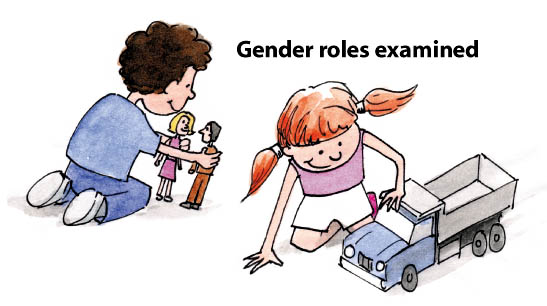
“We had 11 truly joyful years of the deepest love, happiest marriage, and truest partnership that I could imagine … He gave me the experience of being deeply understood, truly supported and completely and utterly loved – and I will carry that with me always. Most importantly, he gave me the two most amazing children in the world…
Dave was my rock. When I got upset, he stayed calm. When I was worried, he said it would be ok. When I wasn’t sure what to do, he figured it out…” wrote Sheryl Sandberg in a moving tribute to her husband.
How many women are lucky to have such amazing, empowering and supportive men in their lives? Men, who empower them to achieve their full potential in life and do share the load of less glamorous family chores to support them. Men, who hear women’s voice and treat women’s choices with respect. Men who recognise that “if we tapped the entire pool of human resources and talent, our collective performance would improve… the achievements will extend beyond those individuals to benefit us all”.

As Sheryl Sandberg points out in her book Lean In, “women still face real obstacles in the professional world, including blatant and subtle sexism… Too few workplaces offer the flexibility and access to child care and parental leave that are necessary for pursuing a career while raising children. Plus, women have to prove themselves to a far greater extent than men do… A 2011 McKinsey report noted that men are promoted based on potential, while women are promoted based on past accomplishments.”

Sheryl also notes that “in addition to the external barriers erected by society women are hindered by barriers that exist within ourselves. We hold ourselves back in ways both big and small, by lacking self-confidence, by not raising out hands, and by pulling back when we should be leaning in. We internalize the negative messages we get throughout our lives… We lower our own expectations of what we can achieve.”
So true. I’ve observed that so often during my University years. While the majority of male students were charging in the exam rooms totally unprepared but still full of confidence, the best female students were spending days and nights preparing for exams, however were still trembling with fear of a failure.
After the exams male students often credited their success to their own innate qualities and skills, while female students often attributed success to good luck. Interestingly enough, after a failed exam male students were often blaming bad luck, while female students were more likely to believe it was due to an inherent lack of ability.
While some women are happy to stay at home looking after their family and children, others might want to pursue career. In both cases they need to have a choice.
Unfortunately, as Sheryl Sandberg points out, while “professional ambition is expected of men” it is “optional – or worse, sometimes even negative – for women. “She is very ambitious” is not a compliment…
Men are continually applauded for being ambitious and powerful and successful, but women who display these same traits often pay a social penalty. Female accomplishments come at a cost….
The stereotype of a working woman is rarely attractive. Popular culture has long portrayed successful working women as so consumed by their careers that they have no personal life. If a female character divides her time between wok ad family, she is almost always harried and guilt ridden…”

While acknowledging biological and some psychological difference between men and women, it is important to recognise that, as Sheryl puts it, “in today’s world, where we no longer have to hunt in the wild for our food”, both men and women should be given a fair chance to make their own choices. ”
However “until women have supportive employers and colleagues as well as partners who share family responsibilities, they don’t have real choice. And until men are fully respected for contributing inside the home, they don’t have real choice either. Equal opportunity is not equal unless everyone receives the encouragement that makes seizing those opportunities possible. Only then can both men and women achieve their full potential. …

We all want the same thing: to feel comfortable with our choices and to feel validated by those around us. If more children see fathers at school pickups and mothers who are busy at jobs, both girls and boys will envision more options for themselves. Expectations will not be set by gender but by personal passion, talents, and interests…
My greatest hope is that my son and my daughter will be able to choose what to do with their lives without external or internal obstacles slowing them down or making them question their choices.”

Thanks Dave and Sheryl for giving us a real example of the deepest love, happiest marriage, and truest partnership in which you both were supporting each other in making your choices in life and reaching your full potential.

Are you being deeply understood, truly supported and
completely and utterly loved?
THE END
Image 1: from http://img-hd.com/dave-goldberg/
Image 2: from http://dailytechwhip.com
Image 3: from http://unitedtruthseekers.com/
Image 4: from Are You Discriminating Against Women Employees Without Even Knowing It?
Image 5: from http://what3words.tumblr.com
Image 6: from http://247moms.com
Image 7: from http://www.womenofchina.cn
Image 8: from https://queerguesscode.files.wordpress.com
Image 9: from http://www.theguardian.com






 We have a long weekend this week which I’m absolutely dreading. I used to love long weekends. They were full of fun, laughter and adventures with the kids…. But now they are just a reminder of the forthcoming empty nest and loneliness…
We have a long weekend this week which I’m absolutely dreading. I used to love long weekends. They were full of fun, laughter and adventures with the kids…. But now they are just a reminder of the forthcoming empty nest and loneliness…














